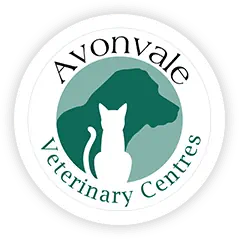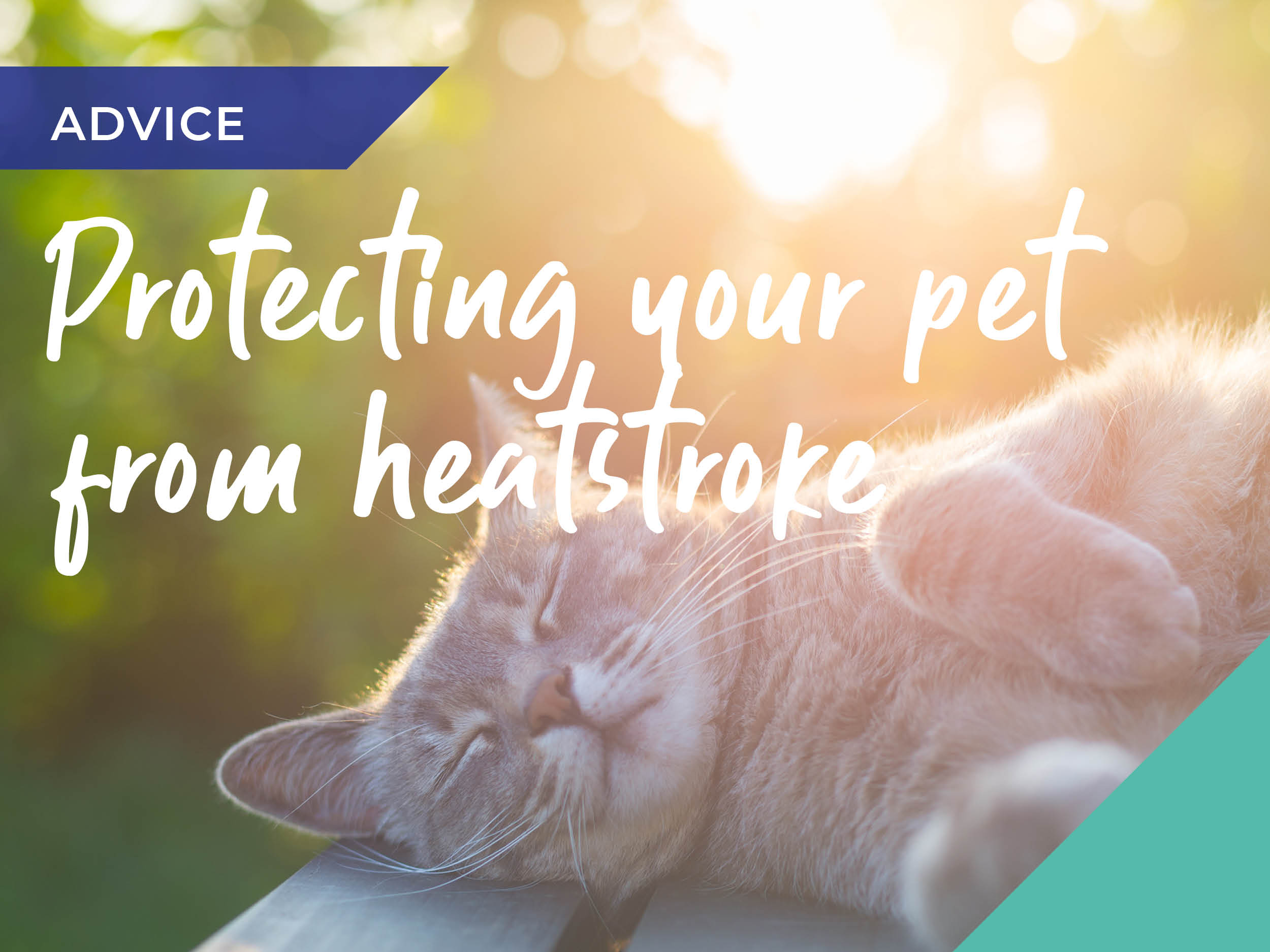As we head into the summer months, and temperatures start rising, we need to protect all family members (however furry they are) from the effects of the sun.
Just like us, animals can develop sunburn, scorch their feet (paws) on hot pavements, become dehydrated or develop potentially fatal heatstroke.
Animals develop heatstroke if their core body temperature becomes dangerously high (hyper thermic) and they lose their ability to cool down. All pets are susceptible to developing heatstroke but some are more at risk than others. It’s a serious illness that requires urgent veterinary treatment.
Dogs and cats are more likely to get heatstroke if they’re overweight, have thick fur or are brachycephalic (have a short nose which can restrict their breathing). Here are some of the signs of heatstroke in dogs and cats to look out for:
- Faster breathing or panting
- Bright pink/purple tongue and gums
- Weakness and collapse
- Vomiting (being sick) and diarrhoea
- Having a seizure (fit)
- Stumbling around
- Muscle tremors (shaking or twitching muscles)
Rabbits and guinea pigs are at particular risk of developing heatstroke as their bodies are inefficient at reducing their own core temperature. They are more likely to develop it if they have long hair, are pregnant, overweight, or live in a hutch which is in direct sunlight.
As prey species, rabbits and guinea pigs often hide any signs of illness or distress as this makes them more vulnerable to their predators. It’s important to check your pets regularly to make sure they’re not masking signs of heatstroke. Signs of heatstroke in rabbits and guinea pigs include:
- Salivating (drooling)
- Drowsiness
- Panting
- Bright pink/purple tongue, gums or ears
- Muscle tremors (shaking or twitching muscles)
If you think your pet has heatstroke, please call us immediately for emergency advice and treatment.
To help protect your pets during spells of warm weather, there are a few simple things you can do at home.
Water
Ensure your pet always has access to fresh water. Like us humans, our pets become dehydrated if they don’t drink enough. Offer your pet plenty of water in a cool shaded area. You can freeze treats and add these to their bowl to encourage them to drink more. Avoid giving freezing cold water or ice cubes; these can cause your dog’s body to go into shock.
Don’t underestimate the power of the paddling pool to cool the entire family down! (So long as you’re happy to share with your four-legged friends!)
Exercise
- Beat the heat and take your dog out for walks during the coolest parts of the day; head out in the early mornings and late evenings.
- Try to avoid strenuous exercise during hot weather. You might consider staying at home altogether during particularly warm spells, especially if your dog is overweight, elderly or has breathing difficulties. It’s safer for your dog to miss a few walks than it is to exercise in extremely hot weather.
- Test the pavement with your hand; if it’s too hot for you, it’s too hot for your dog’s paws!
- Take drinking water and a small bowl with you on walks. If your dog shows signs of heatstroke while you’re out, take them to a shaded area, offer them water and dampen their fur. Call us, or your nearest vet, immediately for advice.
Time out
It’s important that your pet has access to a cool, shaded rest area in your house or their hutch. Ensure the area has an ample amount of airflow and remains well ventilated throughout the day. Some pets enjoy lying on a cooling mat which is designed to stay cool, however warm the room temperature is.
If your rabbit or guinea pig lives in a hutch, move it into a shaded area (or even a cool area in your house), during hot weather.
Sun Cream
Just like us, our dogs and cats can get sunburnt if they are exposed to high levels of UV radiation (the harmful part of sunlight). Protect your pet with a pet-safe sun cream; focus on applying it to areas of pale skin covered by white, or thinning hair such as their ears and noses. If you’d like advice on which sun cream is the right one for your pet, please call us.
Cars, Caravans and Conservatories
- Never leave your pet in a car, caravan or conservatory as inside temperatures, even on a cloudy day, can rocket to dangerously high levels within a few minutes.
- If your dog travels with you in your car, ensure there’s a constant stream of fresh air circulating through the vehicle, either from an open window, or air conditioning. If you see a distressed dog in a car, the RSPCA, along with other animal welfare organisations, recommend you call 999 immediately.
Cooling tips for rabbits and guinea pigs
- Try wrapping a frozen bottle of water in a towel; rabbits and guinea pigs enjoy lying against these to stay cool.
- Move hutches and runs to a cool, shaded area.
- Dampen fresh vegetables with water before feeding them to your pet; this increases their water intake.
- If your pet shows signs of heatstroke, wrap them in a damp towel and call us immediately for advice.
By taking a few simple precautions, you and your pets can safely enjoy the summer together. (And if it’s a typical British summer that will be all three days of it!)







